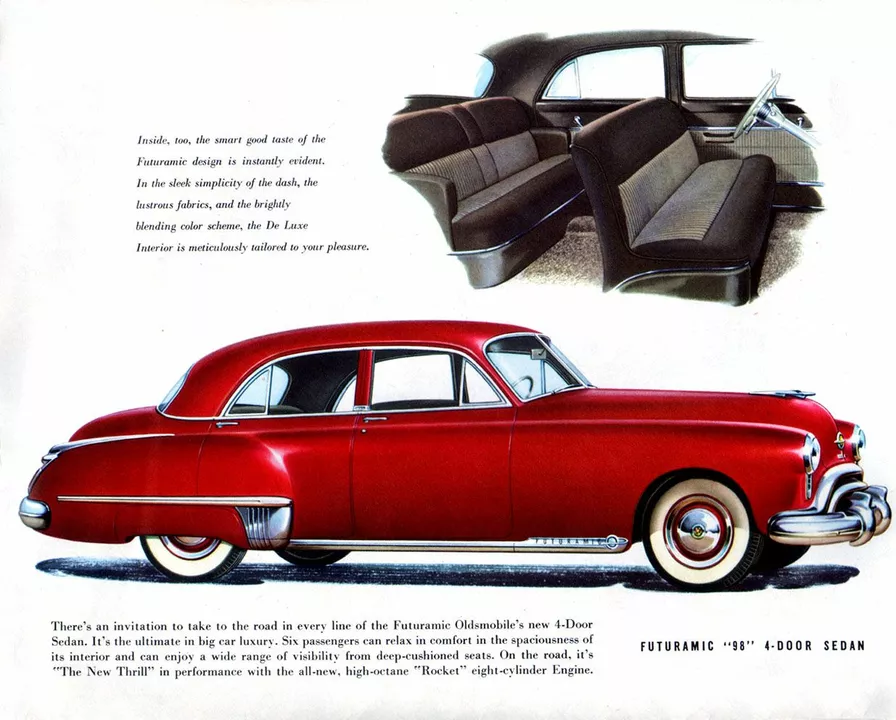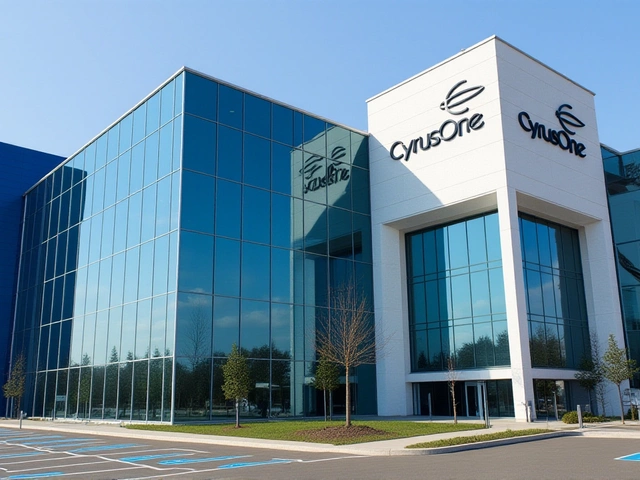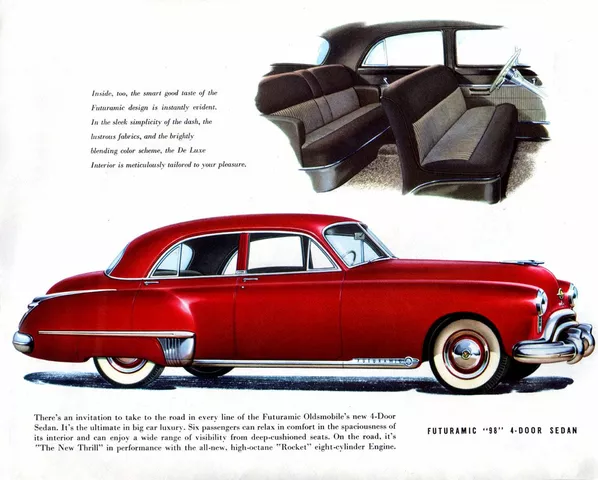Why is GM one of the biggest car brands in the US?

A Brief History of General Motors
Before diving into the reasons why GM has become one of the biggest car brands in the US, it's important to provide some background and context to the company's journey. General Motors, or GM, was founded in 1908 by William C. Durant. Over the years, it has grown to become a multinational corporation and a major player in the global automotive industry. In the early years, GM focused on acquiring various automotive companies, which allowed them to expand their portfolio and market presence.
Today, GM's automotive brands include Chevrolet, GMC, Buick, and Cadillac. The company has not only managed to survive but thrive in the competitive and ever-evolving automotive landscape. The following sections will explore the various factors that have contributed to GM's success and why it remains one of the biggest car brands in the US.
Innovative Design and Engineering
One of the key reasons for GM's success is its commitment to innovative design and engineering. Over the years, GM has introduced many groundbreaking technologies and features that have set their vehicles apart from the competition. Some of these innovations include the introduction of the electric starter, independent front suspension, and the development of the first mass-produced automatic transmission.
In recent years, GM has continued to innovate, focusing on fuel efficiency, advanced safety features, and electric vehicle technology. The Chevrolet Volt, for example, was one of the first mass-produced plug-in hybrid electric vehicles, which helped pave the way for the current wave of electric vehicles on the market. These technological advancements not only make GM's vehicles more attractive to consumers but also demonstrate the company's commitment to staying ahead of the curve in the automotive industry.
Strong Brand Portfolio
Another factor that has contributed to GM's success is its strong brand portfolio. As mentioned earlier, GM's automotive brands include Chevrolet, GMC, Buick, and Cadillac. Each of these brands caters to different segments of the market, allowing GM to reach a wide range of consumers. Chevrolet, for example, focuses on producing affordable and reliable vehicles for the mass market, while Cadillac targets the luxury segment with its high-end vehicles.
The diversity of GM's brand portfolio allows the company to cater to various customer needs and preferences while also providing them with the opportunity to cross-sell and up-sell vehicles within their family of brands. This broad market coverage has been a key factor in GM's ability to maintain its position as one of the leading car brands in the US.
Extensive Dealer Network
Having a wide-reaching and well-established dealer network is crucial for any car brand, and GM is no exception. Over the years, GM has built an extensive network of dealerships across the United States, which has played a significant role in the company's success. This vast dealer network allows GM to effectively distribute and sell their vehicles to even the most remote parts of the country.
In addition to providing great accessibility to customers, GM's dealer network also ensures that their vehicles are well-maintained and serviced. This comprehensive support system helps build trust and confidence among consumers, which ultimately contributes to GM's strong market presence in the US.
Customer Loyalty and Retention
One of the most important aspects of any successful car brand is the ability to maintain customer loyalty and retention. GM has excelled in this area, with many of their customers remaining loyal to the brand for generations. This loyalty can be attributed to several factors, including the company's reputation for producing reliable vehicles, their focus on customer satisfaction, and their commitment to innovation.
GM has also implemented various loyalty programs and incentives, such as the GM Rewards program, which encourages repeat business by offering points for vehicle purchases, services, and accessories. These efforts to reward and retain their customers have played a significant role in GM's continued success in the US automotive market.
Affordability and Value
A key factor in GM's success in the US market is the affordability and value of their vehicles. The company has consistently focused on producing vehicles that offer a great balance between quality and affordability, making them an attractive option for a wide range of consumers. This focus on value has allowed GM to remain competitive, even during economic downturns when consumers are more price-conscious.
In addition to offering affordable vehicles, GM also provides various financing and leasing options to make car ownership more accessible to their customers. By offering flexible and attractive financing solutions, GM ensures that their vehicles remain within reach for a broad range of consumers, further solidifying their position as one of the biggest car brands in the US.
Marketing and Advertising Efforts
Another reason for GM's success is their robust marketing and advertising efforts. Over the years, the company has invested heavily in advertising campaigns that effectively communicate the features and benefits of their vehicles, as well as the brand's overall image. These marketing efforts have helped GM establish a strong brand presence and create an emotional connection with consumers.
GM has also embraced digital marketing channels, such as social media and online advertising, to reach younger consumers and stay relevant in today's digital age. By leveraging various marketing channels and crafting compelling advertising campaigns, GM has managed to maintain its position as one of the leading car brands in the US.
Commitment to Sustainability
In recent years, there has been a growing emphasis on sustainability within the automotive industry. GM has demonstrated a strong commitment to reducing its environmental impact and promoting sustainable practices. The company has invested in the development of electric vehicles, such as the Chevrolet Bolt and the upcoming GMC Hummer EV, as well as exploring alternative fuel options like hydrogen fuel cells.
In addition to their focus on producing environmentally-friendly vehicles, GM has also implemented various sustainability initiatives within their manufacturing processes and supply chain. These efforts to prioritize sustainability not only appeal to environmentally-conscious consumers but also help position GM as a responsible and forward-thinking company within the automotive industry.
Government Support and Bailout
It's important to note that GM's position as one of the biggest car brands in the US was also influenced by government support during the 2008 financial crisis. At the time, GM was on the verge of bankruptcy, and the US government stepped in to provide a bailout, allowing the company to restructure and avoid collapse.
While this government intervention was undoubtedly a crucial factor in GM's survival, it's essential to recognize that the company's subsequent turnaround and continued success can be attributed to the various factors discussed in this article. The bailout provided GM with a lifeline, but it is their commitment to innovation, customer satisfaction, and market adaptation that has allowed them to maintain their position as one of the biggest car brands in the US.
Conclusion
In conclusion, there are several reasons why GM has become one of the biggest car brands in the US. From their commitment to innovative design and engineering to their strong brand portfolio and extensive dealer network, GM has effectively positioned itself as a major player in the automotive industry. Additionally, the company's focus on customer loyalty, affordability, and sustainability has allowed them to maintain their market presence and appeal to a broad range of consumers. While government support during the financial crisis played a role in the company's survival, GM's ongoing success can be attributed to their resilience and adaptability in an ever-changing market.




